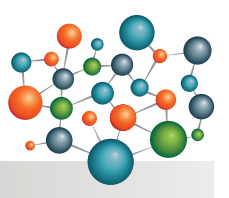The 2019-2020 academic year marks another successful one for Dawson College in the awarding of Entente Canada – Québec (ECQ) grants. Five project grants and two service grants received just under one million dollars in ECQ funding.
The grant recipients for 2019-2020 are:
Project grants
Smartphones – The Overlooked Pedagogical Tool (Faculty lead: Catherine Fichten)
Students typically take their smartphones everywhere, but teachers frequently overlook them as a valuable classroom tool as these are perceived as disruptive and impediments to learning. Our goal is to develop activities that allow faculty to incorporate smartphones into their teaching and take advantage of this ubiquitous mobile device. The strategies and resources developed will be shared with the college network.
Building a faculty learning community (FLC) for indigenous pedagogy (Faculty leads: Michelle Smith and Mark Beauchamp)
To respond to challenges teachers face integrating Indigenous content into their courses, the objective of this project is to build a faculty learning community for indigenous pedagogy. Indigenous student populations are increasing, and many faculty lack the knowledge and skills to actively engage these students. The creation of a website will serve as an Indigenous pedagogy digital resource for the CEGEP network and external indigenous community.
Design and implementation of partially remote credit courses in a variety of college departments or programs (Faculty lead : Chantale Giguère)
Supported by Dawson College’s Office of Academic Development (OAD) and Information Systems and Technology (IST), this project will enable faculty from various departments or programs to appropriate recent research on the pedagogy of distance education/learning, to design and implement a partially remote credit course and to share their expertise with the Dawson community and the college network.
MakerSPACE (Faculty lead: Joel Trudeau)
Grounded in the best practices and principles of the maker movement and active learning pedagogies, the MakerSPACE project is a multistage initiative to establish an important hub of maker education. It features unique interdisciplinary learning and teaching opportunities supported by the creation of next generation STEM curriculum and the development of a makerspace to localize the activities of the associated learning community.
Resistance and Resilience (Lead: Diana Rice)
This project scales up a paracademic project model developed by the Peace Centre and Art Gallery wherein we mount an art exhibition on campus and pair it with a series of speakers, panels as well as professional development (PD) workshops related to theme of the exhibition. The exhibition includes professional artists, emerging artists and student artists. In addition we will create curricular activities/modules related to the exhibition and the speaker topics to be shared with Peace Studies Certificate faculty.
Inter-Institutional Service Grants
Translation/adaptation of institutional documents and pedagogical material (Lead: Louise Paul)
This service provides English-to-French and French-to-English translations for the benefit of the Anglophone colleges. Originally intended to fund translation of institutional policies, since 2006 the ECQ translation dossier has grown to include the adaptation-translation of a broad range of pedagogical material and simultaneous translation at various conferences. The college has a bank of translators with extensive experience in the network to help meet translation needs.
SALTISE/S4 (Faculty lead: Elizabeth Charles)
SALTISE/S4 is consortium providing a service to help educational institutions deploy active learning approaches. It comprises an inter-order network of educators and educational researchers, a digital professional learning community (PLC) platform, a digital student learning platform and a data analytic infrastructure to monitor and evaluate student success.
The current mandate is to service the community on three fronts.
- The first is to provide outreach activities that sensitize educational stakeholders to active learning by providing evidence for the inefficiencies of traditional approaches and a set of evidence-based AL approaches.
- The second is to support educators in their deployment of active learning approaches, from the use of technological platforms to classroom redesign.
- The third is in providing a network of experts that can help build local communities of practice that can scaffold and support educators in their development of expertise in AL.
Through its many years of receiving ECQ grants, Dawson College has shown itself to be a leader in innovation, pedagogical change and dedication to enrich the educational experience of students.
Congratulations to all award winners!
The Entente Canada – Québec grants stem from the federal law on official languages that promotes the two official languages, French and English. Negotiated and signed by Heritage Canada and Quebec’s Ministry of Education, the Entente supports minority language instruction and second language instruction. Within Quebec’s higher education sector, grants are awarded through an annual call for proposals open to colleges (CEGEPs) and universities. Dawson College faculty and staff who have projects that meet the criteria for the grant are eligible to apply. For more information on the ECQ, please contact the Coordinator of Non-Research Projects, Louise Paul.




